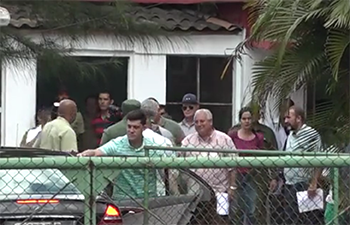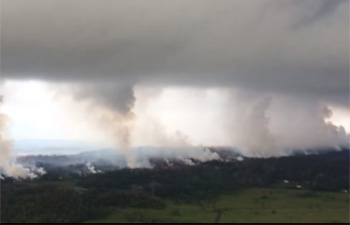LOS ANGELES, May 22 (Xinhua) -- U.S. private space firm SpaceX launched two new Earth-observing satellites for NASA and five commercial communications satellites for Iridium on a used Falcon 9 rocket in a ride-share mission on Tuesday.
The rocket blasted off from Space Launch Complex 4E (SLC-4E) at Vandenberg Air Force Base, the state of California, at 12:47 p.m. PDT (1947 GMT).
The U.S. National Aeronautics and Space Administration (NASA)'s Gravity Recovery and Climate Experiment Follow-On (GRACE-FO) satellites deployed approximately 11 minutes and 30 seconds after launch.
"The twin #GRACEFO satellites have deployed from the @SpaceX Falcon 9 rocket. We await our first communication from #GRACEFO via our communications station at McMurdo, Antarctica," NASA tweeted after launch.
Five Iridium NEXT satellites will begin deployment about an hour after launch. The Iridium Next communications satellites that SpaceX is launching with GRACE-FO are the latest in a series for Iridium Communications to build up that company's satellite constellation.
"In 2016, there was a commercial launch that actually put government rideshare on it, so we are seeing more options that commercial satellites can put government rideshare on it," Carrie O'Quinn, Senior Project Engineer at the Aerospace Corporation, told Xinhua.
"I would like to see more of it, just because I'd like to see the total launch cost to go down...you know...get us to space as fast as we can," she said.
Falcon 9's first stage for the Iridium-6/GRACE-FO mission previously launched the U.S. Air Force's classified Zuma mission in January. That mission was lost, but SpaceX was not to blame for the mishap.
Although the rocket stuck a flawless landing on its last mission, the California-based company does not plan to attempt to recover Falcon 9's first stage after launch.













